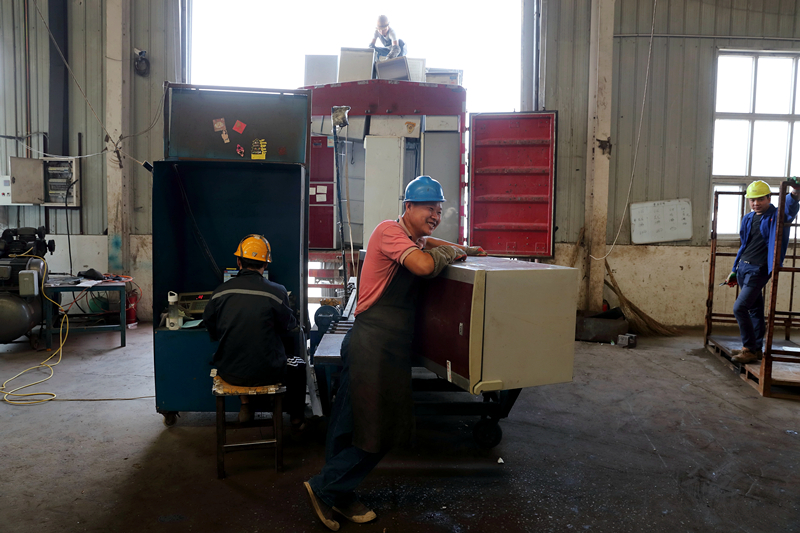E-waste recycling troubles pile up

Experts call for change in outdated methods and mindsets

Every day, Ma Xianjin rides his tricycle to a public trash collection station in Beijing's Fengtai district. After putting up a piece of cardboard that states "I buy household appliances" near the gate to the station, he waits for business.
"On most occasions, customers come because the guards at the gate of the nearby community tell them I am here," said Ma, who is in his 40s. "Many of the guards see me moving unwanted appliances out of communities, and in this way learn that I am doing business."
Ma said he sells appliances he collects on the same day. "With just a phone call, buyers will arrive in their trucks to take them in the evening," he said. He pays about 30 yuan ($4.40) for a washing machine and the same for a refrigerator.
He said business is good enough for him to make a living. However, he does not know where the appliances end up or whether they will create pollution if not properly disposed of.
With no formal collection systems for electronic waste in China, people such as Ma are filling the gap. However, many appliances collected by businesses such as his are dismantled by unqualified companies that spend little on pollution control efforts.
Such businesses have also been criticized by experts and industry insiders for making the cost of recycling e-waste too high. The businesses also are partly blamed for the difficulties of a pilot program for recycling home appliances that is supposed to be extended to other industries.
By the end of this year, China will completely ban imported waste which can be replaced by that produced domestically, to enable recycling companies to clear more.
As a result, an efficient collection channel has become increasingly important for the country, experts said.
Despite a series of government efforts, including a law amendment and setting up a new department to oversee management of solid waste, the country also urgently needs to change the mindset where too much money is being demanded for discarded e-waste.
As part of its efforts to promote recycling, in 2011, the government started piloting the extended producer responsibility system, which is designed to link the costs associated with products throughout their use with their market price.



































